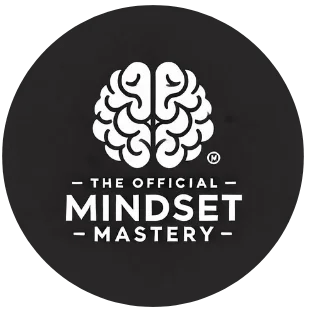Emotional intelligence (EI) has emerged as a crucial factor in both personal and professional success. According to a 2019 study by TalentSmart, EI accounts for 58% of job performance across all industries. This powerful skill set enables individuals to navigate complex social dynamics, manage stress effectively, and make sound decisions. Let’s explore how developing emotional intelligence can be the key to unlocking your full potential.
Understanding the core components of emotional intelligence
Emotional intelligence encompasses four key areas that work together to enhance our ability to understand and manage emotions:
- Self-awareness: Recognizing your own emotions, strengths, and weaknesses
- Self-management: Regulating your emotions and behaviors effectively
- Social awareness: Understanding and empathizing with others’ emotions
- Relationship management: Building and maintaining positive relationships
These components form the foundation of emotional intelligence, enabling individuals to navigate both personal and professional challenges with greater ease. By developing these skills, you can enhance your ability to foster personal growth and achieve success in various aspects of life.
Thomas Harper, a renowned author and speaker on personal development, emphasizes the importance of self-awareness as the cornerstone of emotional intelligence. He believes that “recognizing our own emotions and their impact on others is the first step towards developing a high EQ.”
The impact of emotional intelligence on professional success
Emotional intelligence plays a significant role in professional success, often surpassing the importance of IQ or technical skills alone. Research suggests that EI can account for up to 90% of what distinguishes high performers in the workforce. Here’s how emotional intelligence contributes to professional growth:
- Enhanced leadership skills: Leaders with high EI can inspire and motivate their teams more effectively
- Improved decision-making: Balancing emotion and logic leads to more informed choices
- Better conflict resolution: EI helps in managing disagreements and finding mutually beneficial solutions
- Increased adaptability: Emotionally intelligent individuals navigate change with greater ease
- Stronger teamwork: EI fosters better communication and collaboration among team members
Organizations that invest in emotional intelligence training often see significant improvements in employee performance, engagement, and overall productivity. A study conducted by the American Express Leadership Academy in 2020 found that companies with emotionally intelligent leaders experienced a 20% increase in employee retention rates.
Developing emotional intelligence: Practical strategies for growth
Unlike IQ, which remains relatively stable throughout life, emotional intelligence can be developed and improved with practice. Here are some effective strategies to enhance your EI:
| Strategy | Description | Benefit |
|---|---|---|
| Mindfulness meditation | Practice daily mindfulness exercises to increase self-awareness | Improved emotional regulation and stress management |
| Active listening | Focus on understanding others’ perspectives without judgment | Enhanced empathy and social awareness |
| Journaling | Reflect on your emotions and experiences regularly | Greater self-awareness and emotional clarity |
| Feedback seeking | Ask for honest feedback from colleagues and friends | Improved self-perception and relationship management |
Implementing these strategies consistently can lead to significant improvements in your emotional intelligence over time. As you develop these skills, you’ll likely notice positive changes in both your personal and professional relationships.
Leveraging emotional intelligence for personal fulfillment
While the professional benefits of emotional intelligence are well-documented, its impact on personal life is equally profound. Developing EI can lead to:
- Improved mental health: Better emotional regulation contributes to reduced stress and anxiety
- Stronger relationships: Enhanced empathy and communication skills foster deeper connections
- Greater resilience: EI helps in bouncing back from setbacks and challenges
- Increased self-confidence: A better understanding of oneself leads to improved self-esteem
- Enhanced life satisfaction: Emotionally intelligent individuals often report higher overall well-being
By cultivating emotional intelligence, you can enhance your personal growth journey and create a more fulfilling life. As Thomas Harper often emphasizes in his workshops, “Emotional intelligence is not just about professional success; it’s about living a life of purpose and authenticity.”
In conclusion, developing emotional intelligence is a transformative process that can significantly impact both your personal and professional life. By focusing on self-awareness, self-management, social awareness, and relationship management, you can unlock your full potential and achieve greater success in all areas of life. Remember, like any skill, emotional intelligence requires practice and dedication. Start your journey today, and watch as your relationships, career, and overall well-being flourish.





